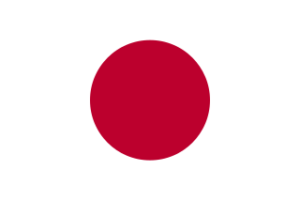Oodate Magewappa (Bent Wood) Artisans Showcase Skilled Works to a Delegation from North Karelia
Designated as a Traditional Craft of Japan by the Ministry of Economy, Trade and Industry, Oodate Magewappa products made of natural Akita cedar are everyday utilitarian goods with understated, timeless beauty, durability and versatility.
By Naomi Moriyama
On March 24, 2025, Finland’s North Karelia Forest Bio Economy International Growth Ecosystem Delegation was treated to a tour of the hand-crafting factory of Ryobi An in Oodate City in Akita Prefecture.
In the showroom, Mr. Yoshihiko Ishikura, Representative Director of Ryobi An, held each item in his hands and explained its purpose and a story behind it.
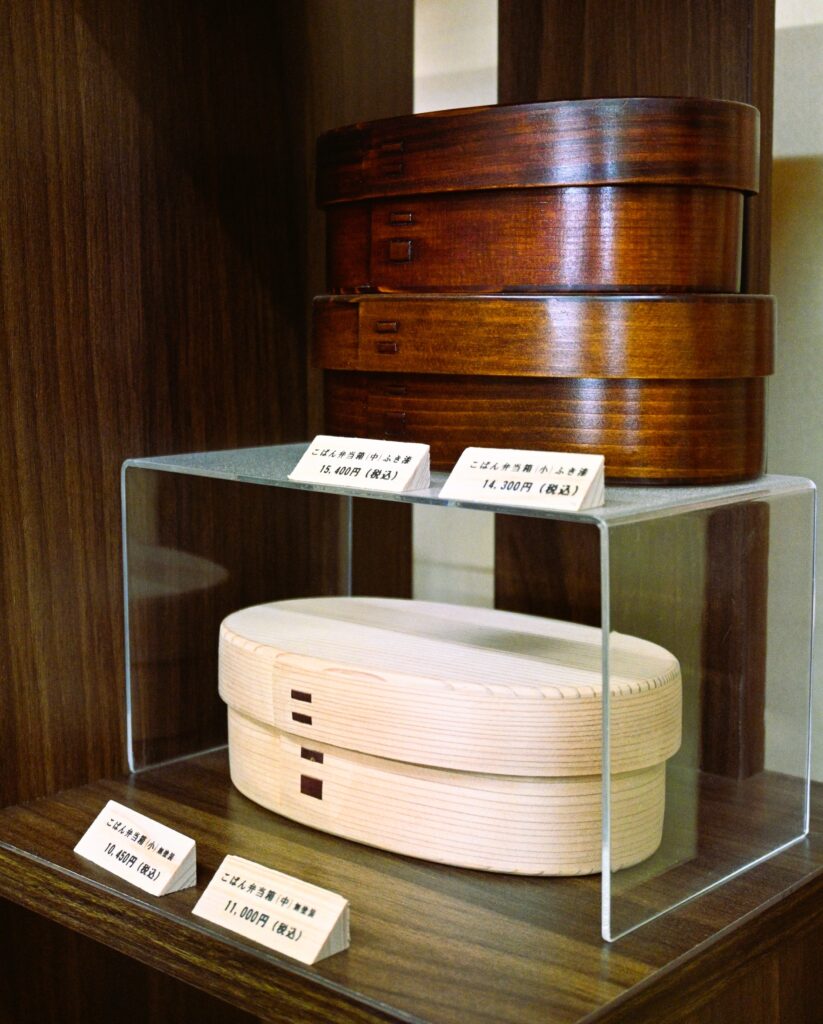
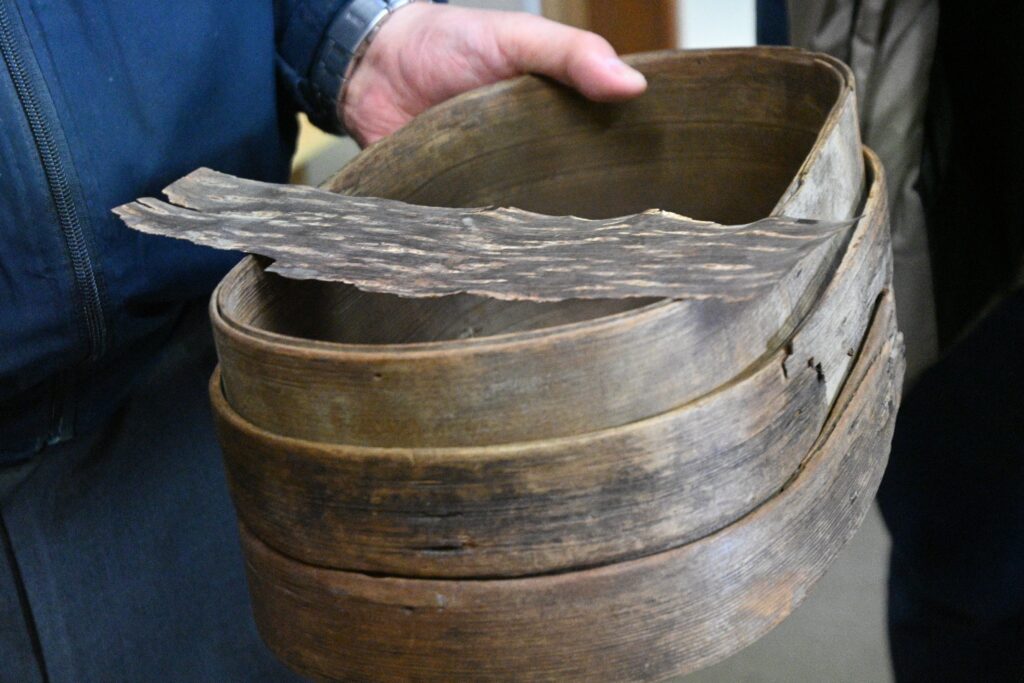
The most common item produced with the Magewappa technique is an oval-shaped lunch box. Because the sheets of wood are coated during the manufacturing process, food with small amount of broth can be carried without leaking. Unlike metal, wood does not transmit heat, so even when hot food is placed inside the box, a hand holding it does not get burned.
Ryobi An has developed new products combined with the traditional crafts to appeal to a broad audience. For example, the company worked with a Kiyomizu-yaki potter in Kyoto, and developed sake servers which bodies are made of Magewappa and lids are ceramics. They are sold to customers in Paris.

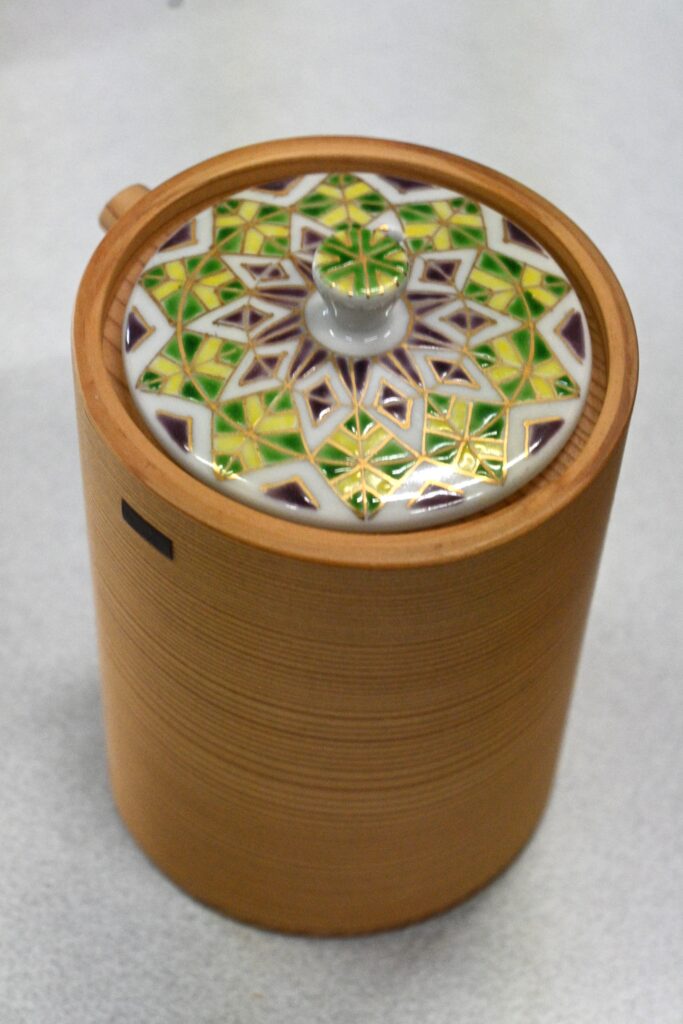
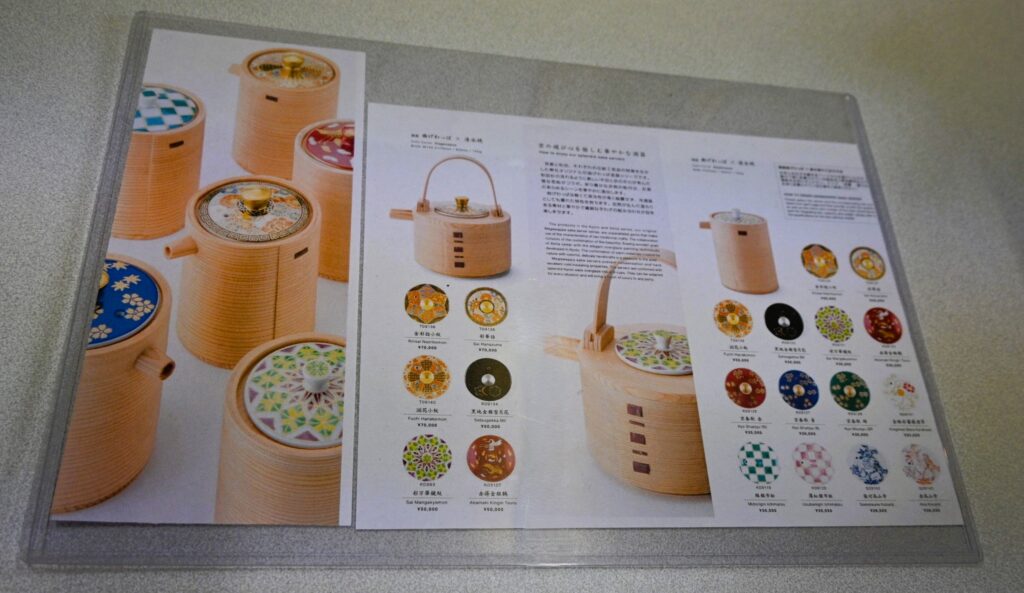
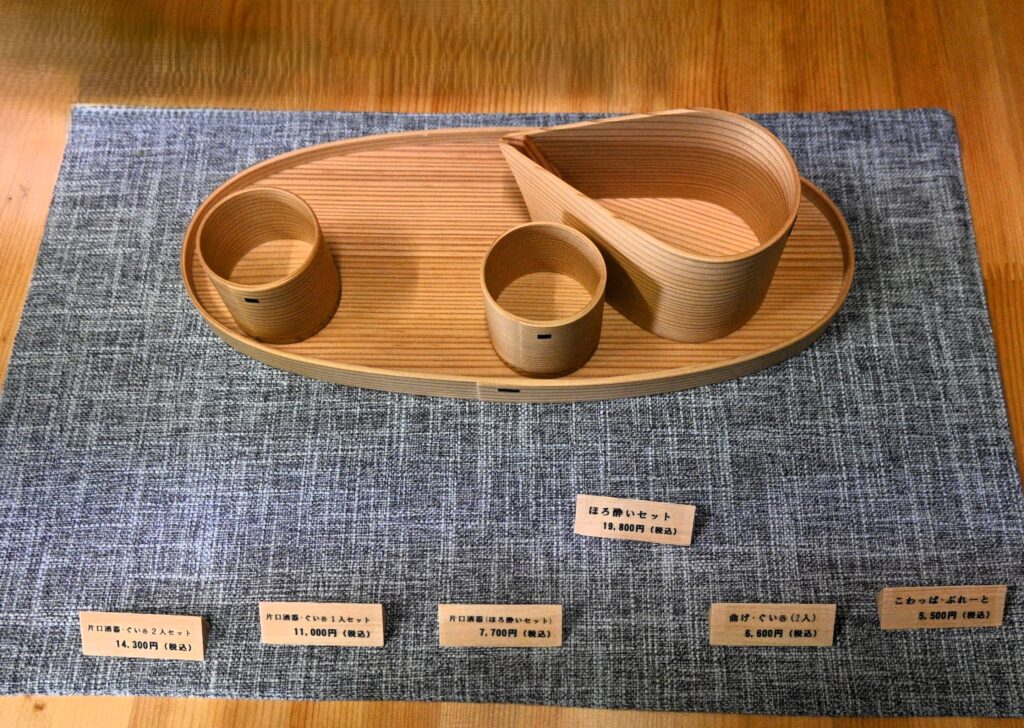
Ryobi An has created an original sake pitcher and cup set for a hotel in Shibuya, Tokyo.
Mr. Ishikura led the group into the studio where several crafters attended to each item one at a time. Here at Ryobi An, everything seems to be a limited edition. While some manufactures use automated machines for fast mass production, Mr. Ishikura says “Our process takes more time and our products’ quality is superior.”
A young artisan lifted thin long boards from a tub of hot water, and took one out and placed it against a lunch box mold on the worktable.
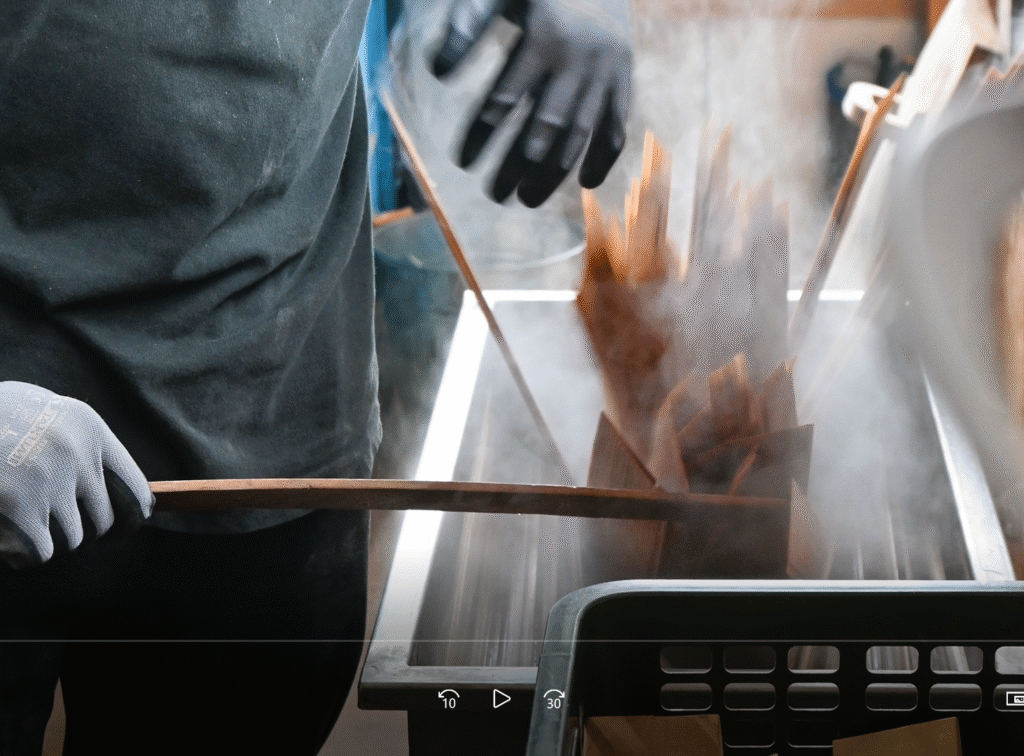
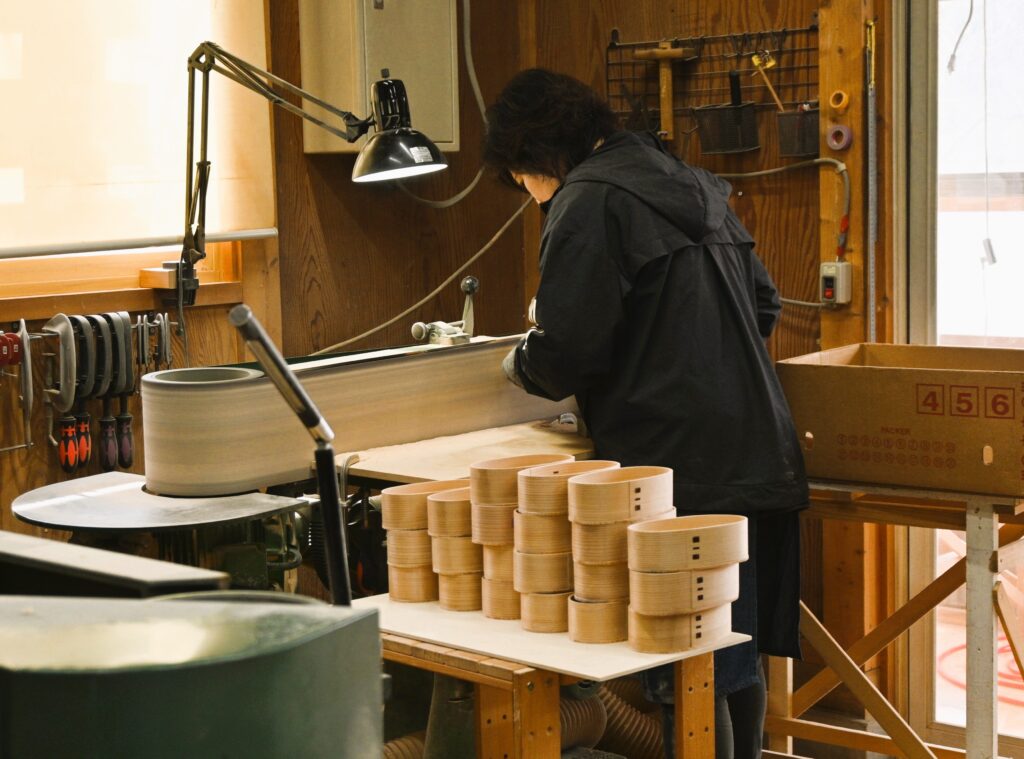
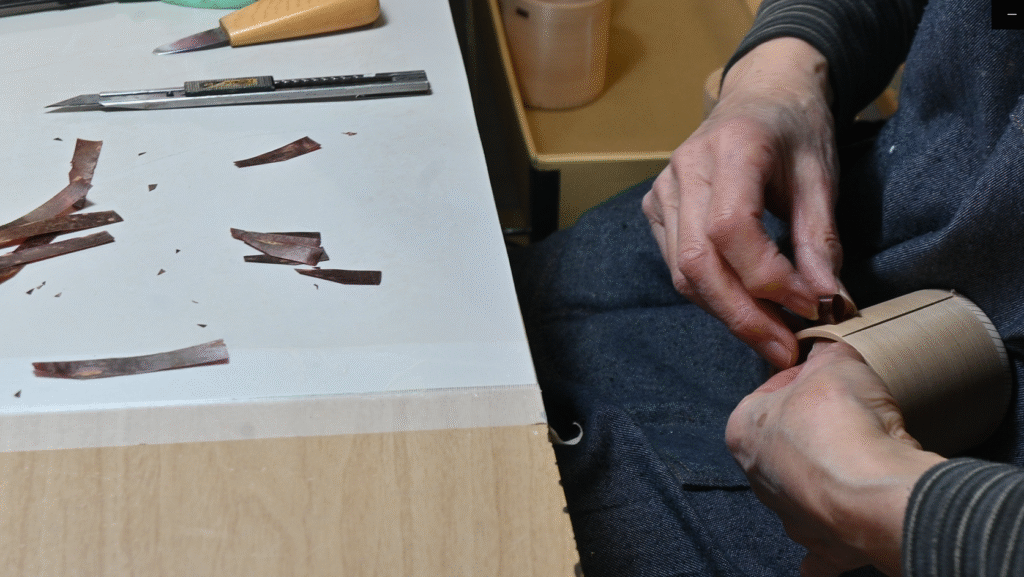
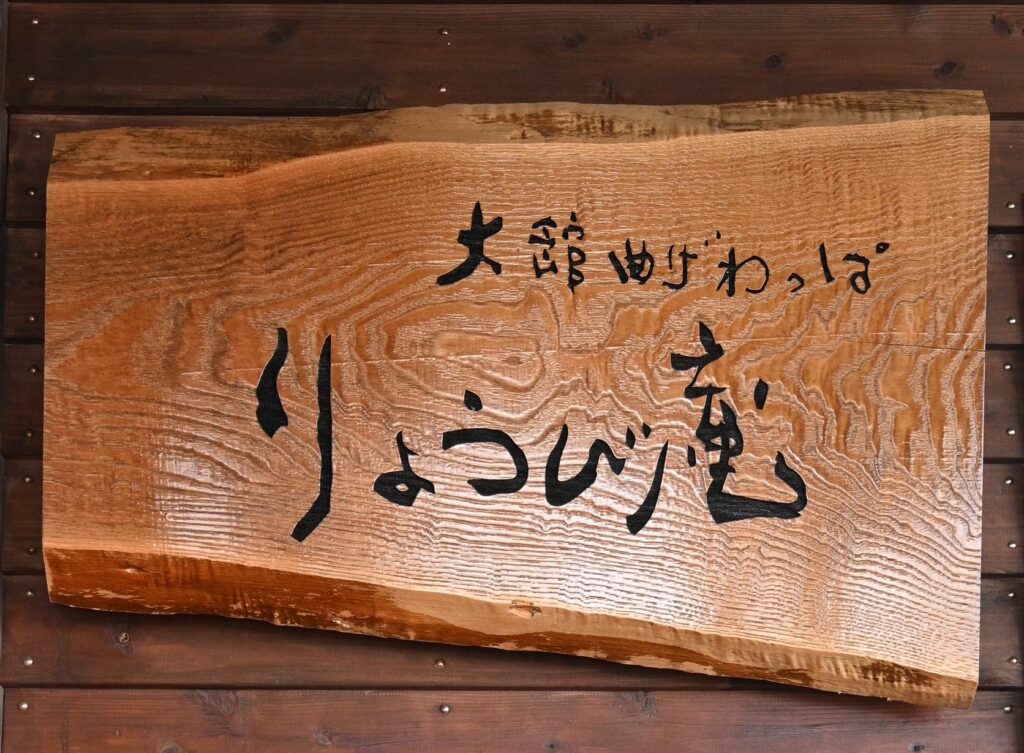
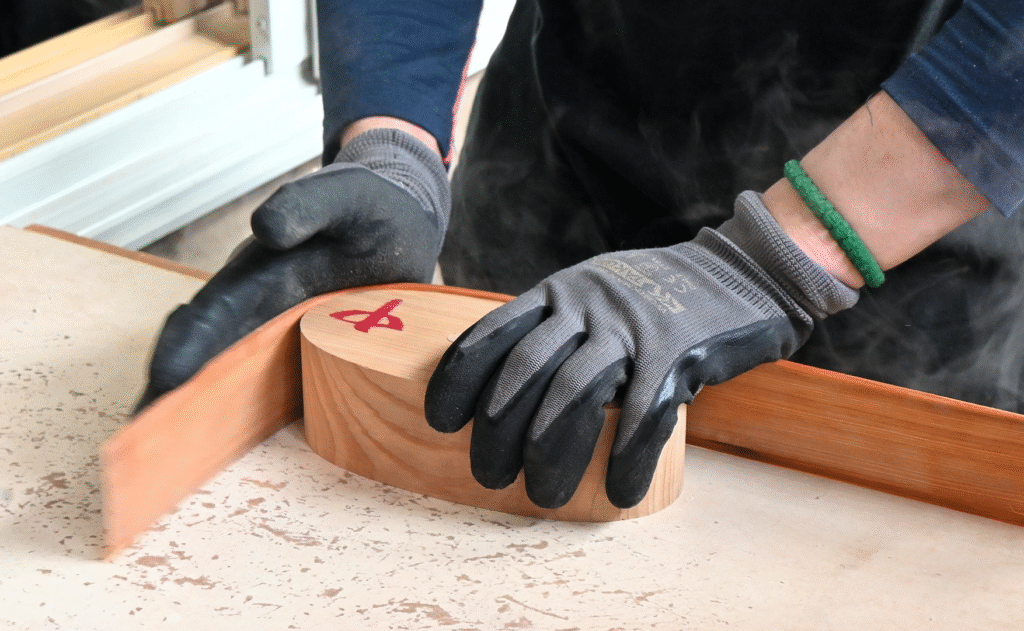
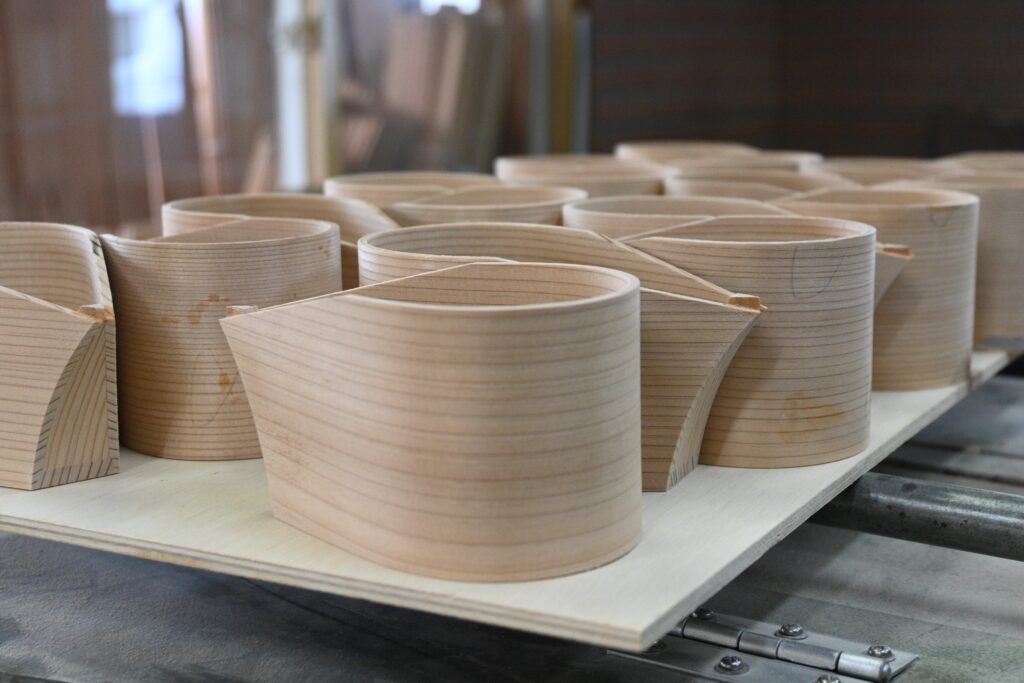

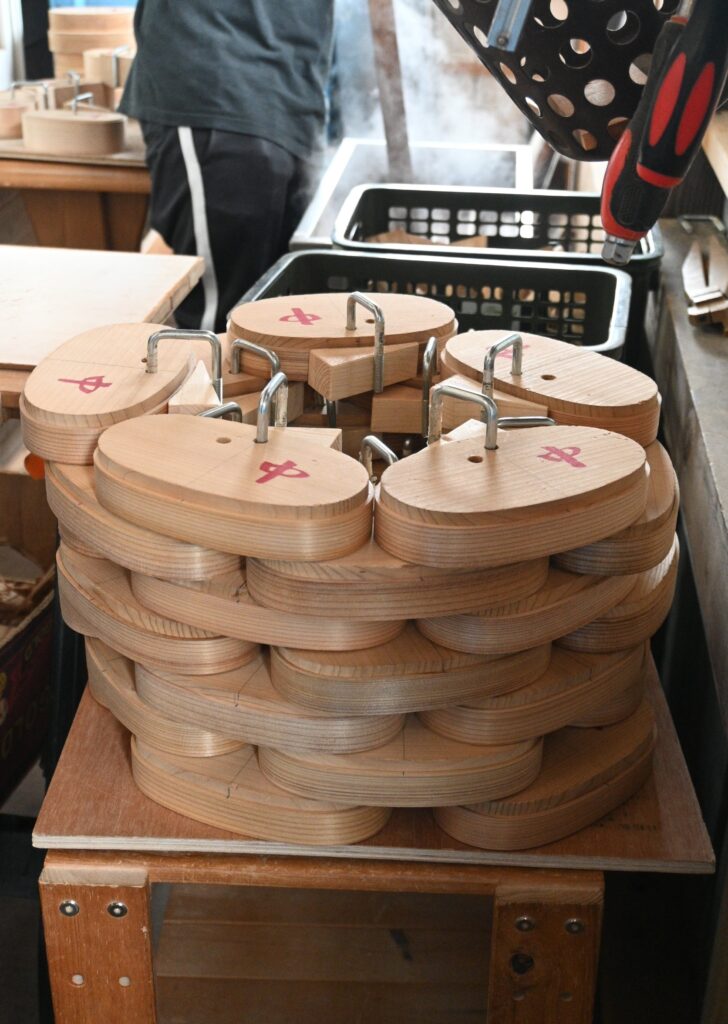
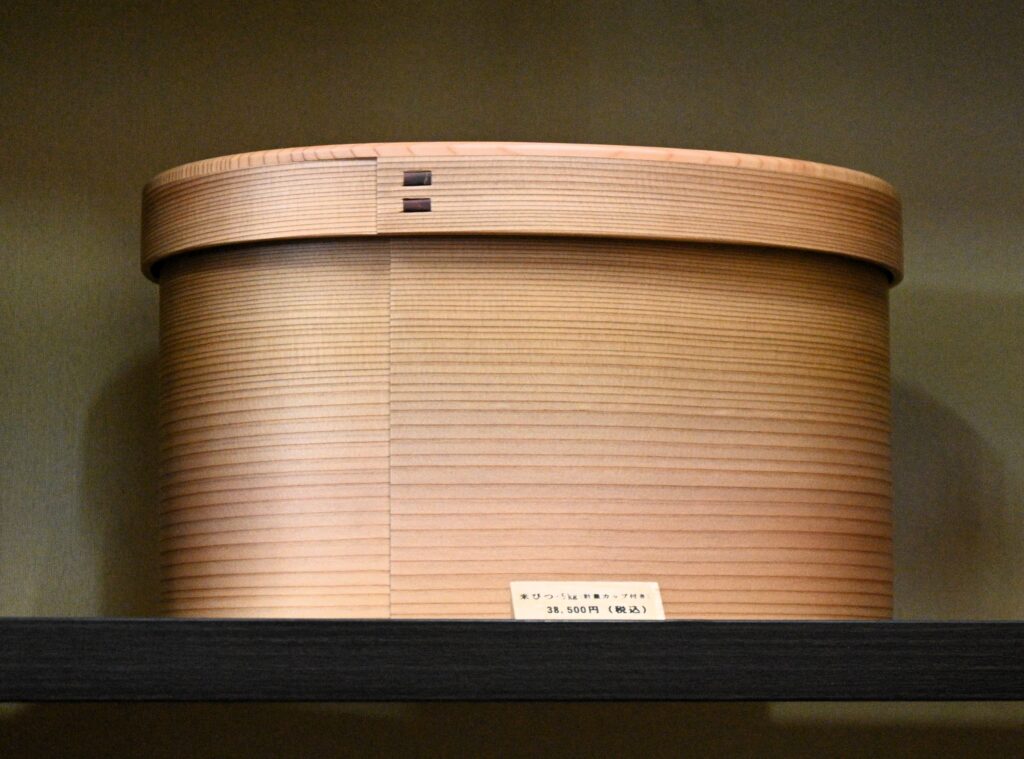
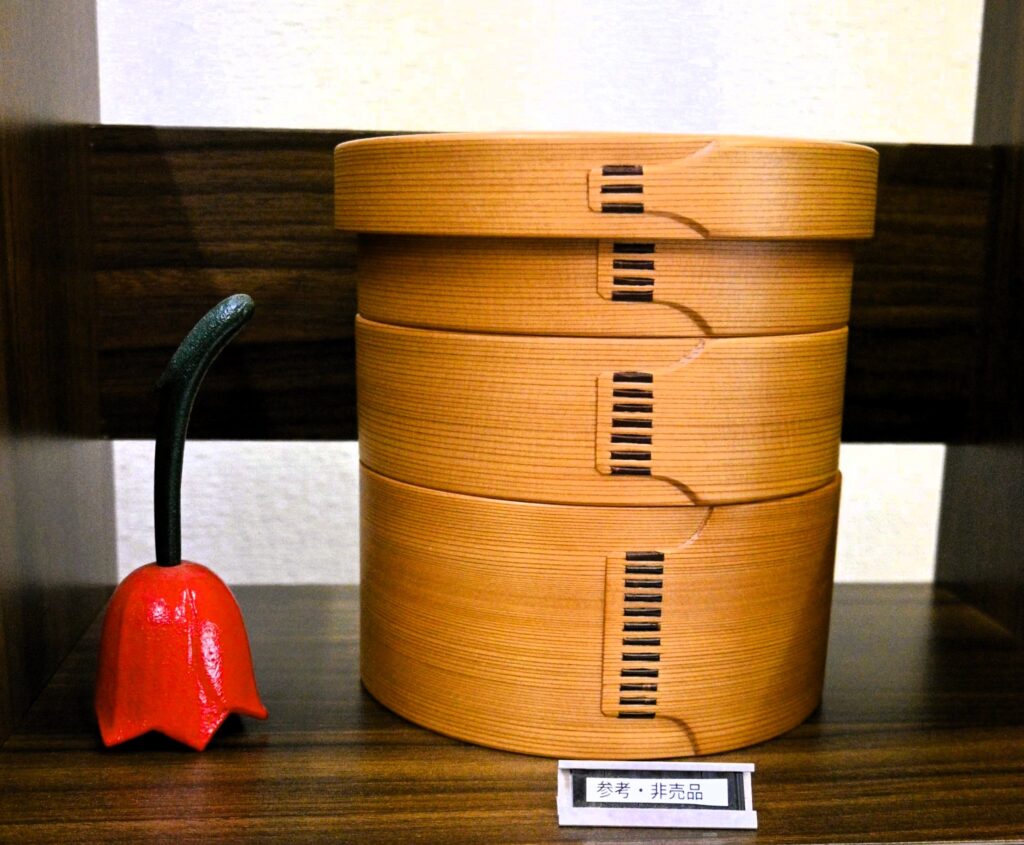
I bought a beautiful deep-lid oval-shaped bento box. After returning to Helsinki, I cooked Japanese premium short grain rice, grilled green asparagus in season and an eggplant, and sliced red and yellow bell peppers. I packed them elegantly in the bento box and garnished them with toasted and ground sesame seeds and shredded nori sea vegetables. Foods taste extra delicious when they are arranged like jewels in a delicate yet functional, elegant tableware.
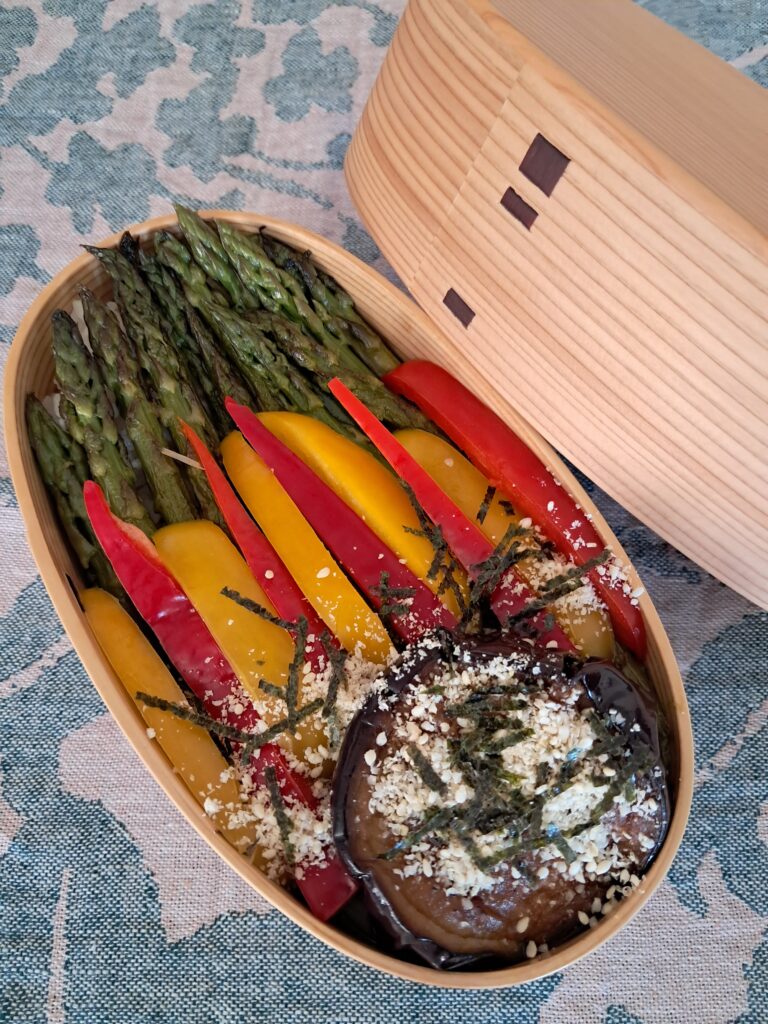
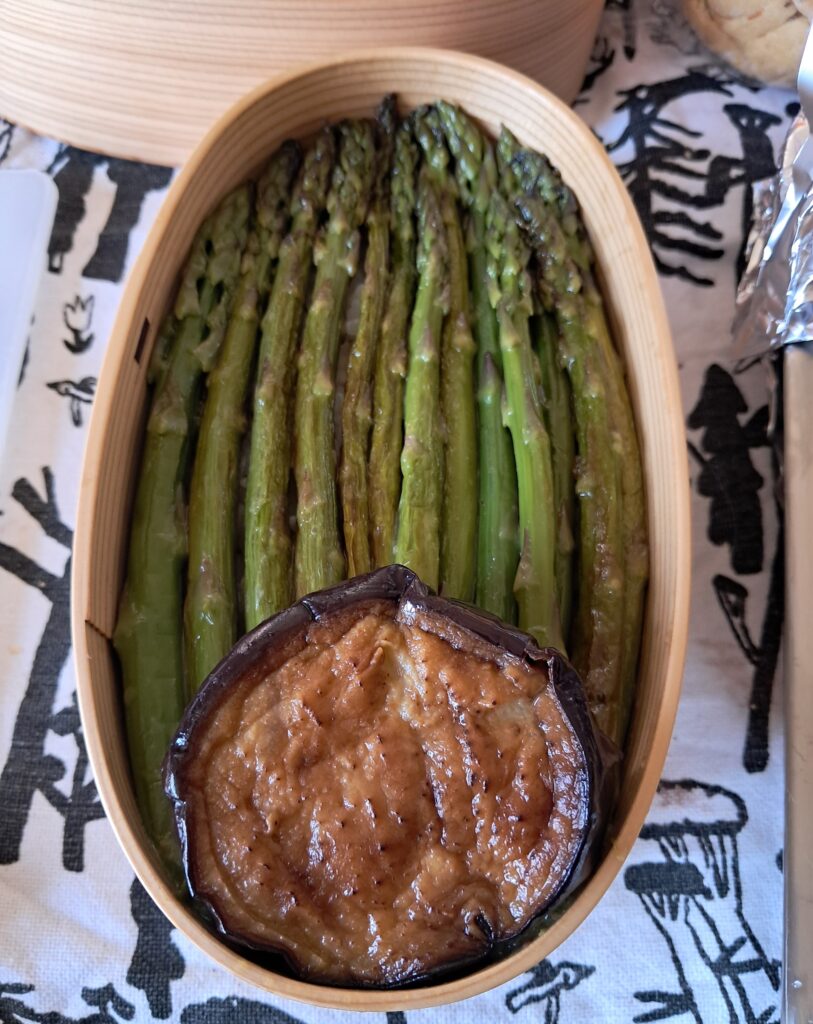
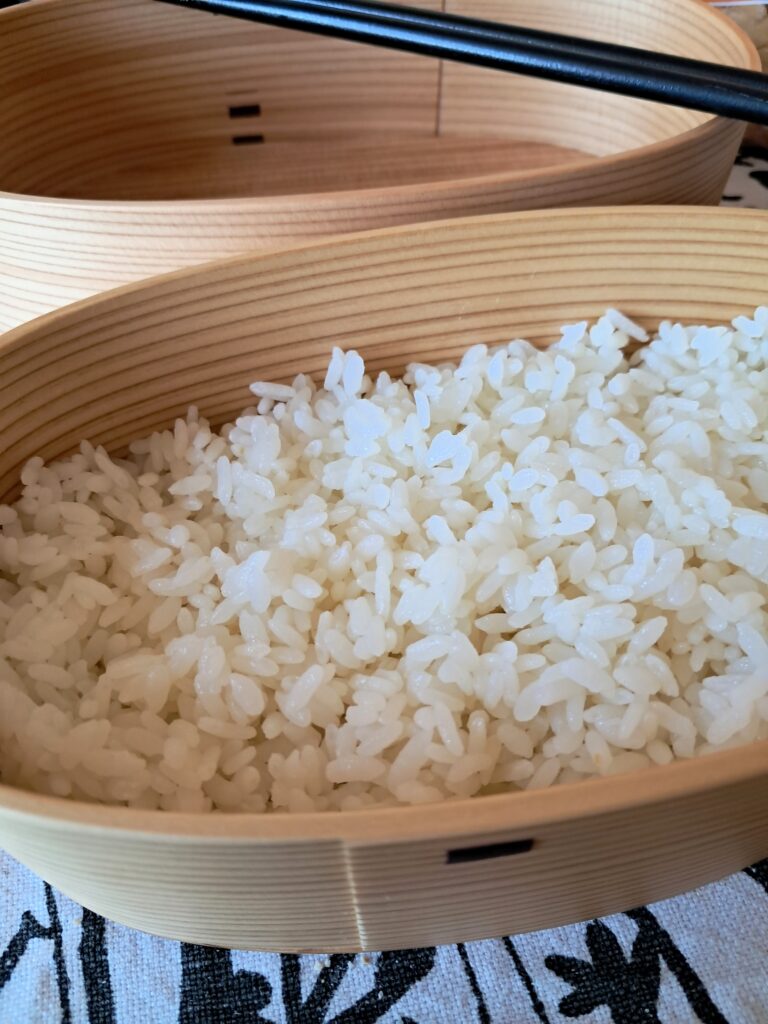
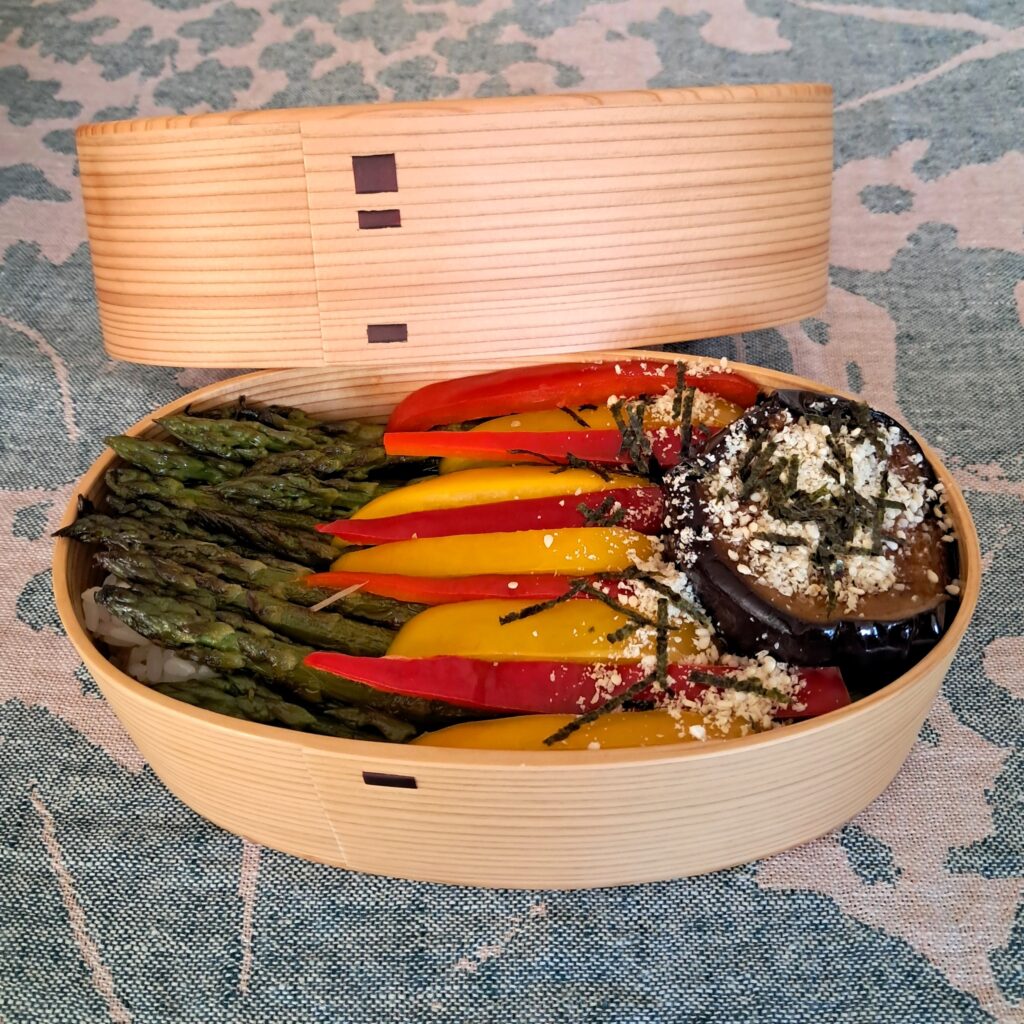
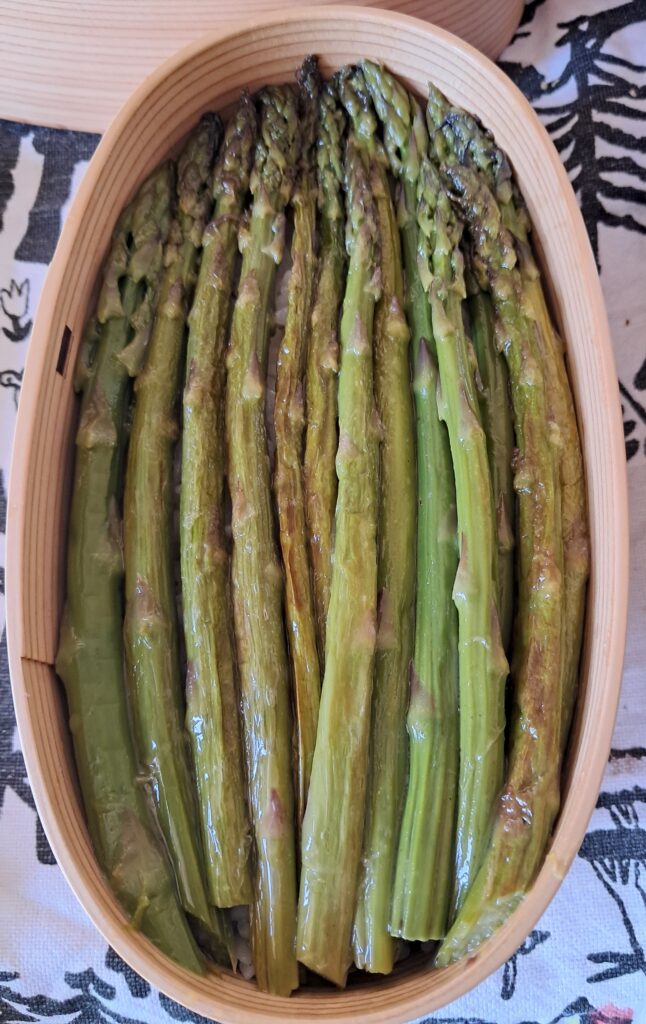
Photos Naomi Moriyama 写真 森山奈保美
For More Information about Ryobi An
Akita’s COI-Next Souzou no Mori Project: Co-Creating Well-Being through Forest Resources
Led by Akita’s three public universities, harnessing forest resources for research-driven innovation and human capital development, revitalizing industry and economy, pursuing co-creating well-being
in the local community. https://en.akita-souzounomori.com/
Forest Joensuu is the triple-helix model of Forest Bioeconomy in North Karelia, Finland.
The BIOSYS North Karelia International Growth Ecosystem is run by Natural Resources Institute Finland / Luonnonvarakeskus as a project lead, the Regional Council of North Karelia Pohjois-Karjalan maakuntaliitto, University of Eastern Finland and MKN Itä-Suomi | Rural Women´s Advisory Centre (RWAC) of Eastern Finland. The project is funded by Renewing and Competent Finland 2021–2027, EU Regional and Structural Policy Programme’s Just Transition Fund – JTF, and Regional Council of North Karelia.
Project Profile in Finnish
プロジェクト概要日本語
Project Profile in English
Follow us on LinkedIn
For more information, please contact Naomi Moriyama [email protected]



